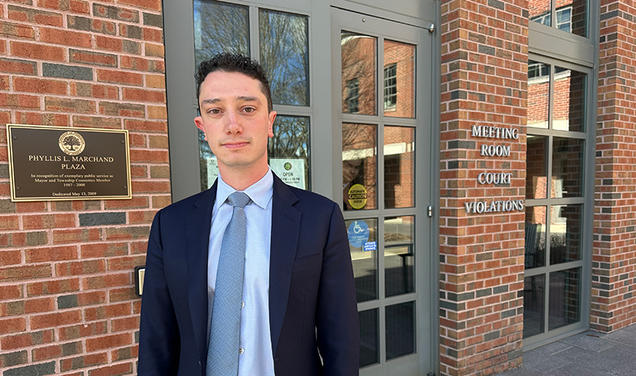Heather Howard Seeks Health Equity
Howard is finding ways to make health care more equitable and innovative
Heather Howard arrived at Princeton with an unusual amount of hands-on policy experience. She earned a law degree from New York University and spent much of her career as a policy adviser at both the federal and state level, holding positions with first lady Hillary Clinton and former New Jersey Gov. Jon Corzine. Throughout her career, Howard has maintained a clear focus on health equity, with an emphasis on expanding health insurance coverage and creative strategies to improve health outcomes for all.
“The ACA [Affordable Care Act] has been really resilient. … But now the biggest challenge is, what does the ACA look like coming out of the pandemic? Are we going to maintain the gains we’ve made in terms of health insurance coverage, or are we at risk of losing ground?”
asks Heather Howard.
Howard joined the School of Public and International Affairs (SPIA) in 2011 and was promoted in 2021 to professor of the practice, a new University title for faculty members who have demonstrated major impact in their field. At SPIA, she is co-director of Global Health and Health Policy at the Center for Health and Wellbeing and director of the State Health and Value Strategies program. The latter, which works with states to make health care “more equitable, affordable, and innovative,” recently received a $10.6 million grant from the Robert Wood Johnson Foundation.
Howard’s Research: A Sampling

Mending Medicaid
Medicaid, the joint federal and state health insurance program, currently insures more than 90 million Americans. As Howard explains, Medicaid enrollment increased during the COVID-19 pandemic, as Congress required states to keep people enrolled as a condition of receiving federal relief funds. However, Congress recently authorized states to resume their normal eligibility checks — and as a result, up to 18 million people could lose their coverage. The risk is higher for people of color, who are more likely to be enrolled in Medicaid and also face greater housing instability, meaning that states are less likely to have their correct addresses on file. Howard is working with multiple states to figure out how to keep individuals who should qualify for Medicaid from losing their coverage.

Supporting Black Mothers
The United States has the highest rate of maternal mortality of any developed nation, and the CDC recently released a report showing that maternal mortality worsened during the COVID-19 pandemic, especially among Black women. “The trends are all going in the wrong direction,” says Howard. In New Jersey, for example, Black women are seven times more likely to die from pregnancy-related causes than women of any other racial background. Howard is working with states to create interventions aimed at improving maternal health outcomes and is studying the results of those interventions. Proposals include providing more reimbursement options for the use of doulas and midwives, as well as ensuring that women have access to health insurance throughout their reproductive years.

Podcast Power
In the fall, Howard launched “The Princeton Pulse Podcast” as a platform to showcase “how research informs policy.” For each episode, Howard interviews both a researcher and a policymaker. One episode focused on interventions to prevent obesity compared the implementation of a soda tax in Philadelphia with a similar tax in South Africa. Howard interviewed Dwayne Wharton, a health equity advocate in Philadelphia, and Dr. Karen Hofman, a pediatrician in South Africa, to examine how a regressive tax, which has the greatest impact on lower-income individuals, can actually be progressive from a health equity standpoint, since lower-income communities experience higher rates of obesity. By J.W.












0 Responses